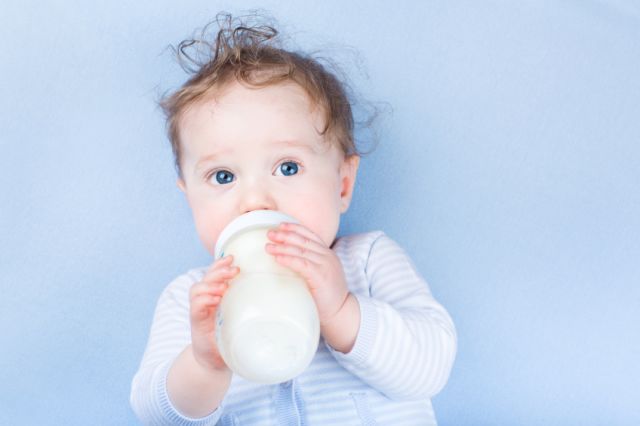You may have seen recipes circulating online for homemade baby formula. It may be tempting to try them, but please don't. Making your own baby formula simply isn't safe.
I say this out of love and education, but also out of fear. I am a mother of three boys and a pediatrician who has cared for babies for more than 15 years. I’m also a spokesperson for the American Academy of Pediatrics and author of What to Feed Your Baby: A Pediatrician’s Guide to the 11 Essential Foods to Guarantee Veggie-Loving, No-Fuss, Healthy-Eating Kids. My writing partner, Beth Saltz, is also a mom, registered dietitian, and chef.
The truth about homemade formula
We’re not going to get into the breast milk vs. formula debate. We know that most parents are doing the best they can for their families given the resources and capacities they have. In fact, in our practices, we’ve never met a parent who didn’t want the best for their baby.
My co-author and I have breast-fed our children and fully support breastfeeding. Although our motto is usually to skip the baby food aisle, if you aren’t breastfeeding your baby, we agree that it is okay to buy formula off the shelf.
I’m certain that good intentions lie behind homemade formula. Some parents may feel that making their own infant formula is “healthier” or more “natural” or “safer” than buying commercial baby formula. That said, in trying to do what they feel is best, some parents may go about it wrong and end up compromising their baby’s health. This is often the case with homemade infant formula.
Pros and cons of homemade formula
Can homemade formula provide nutrition? Yes. But you would have to be a nutrition scientist with an expensive lab in order to make something safe and healthy. Yes, commercial baby formulas are made by big companies in giant factories. But these companies have spent billions of dollars researching and developing products that meet the U.S. Food and Drug Administration (FDA) standards for nutrition and safety as set by the Infant Formula Act, which was developed to safeguard the nutritional health of infants.
The very existence of the Infant Formula Act tells us there was a need for one. Companies must follow specific safety and nutritional standards to keep our most vulnerable population safe.
Why would you want to guess at the correct ratio of easily digestible protein, fat, carbohydrates, vitamins, and minerals that babies need for their growing brains, vision, and bones? There is no nutritional analysis for these home recipes and consuming improper quantities of nutrients can cause poor growth and development. Too much of certain nutrients can even cause toxicity.
Not only is there a critical risk of improper nutrition, there is also the chance for contamination with bacteria and other germs. Among the health hazards, some homemade infant formulas contain raw animal milk, which can lead to serious and deadly infections. Food safety hazards can occur anywhere along the chain. Perhaps your milk base (goat, dairy, or otherwise) was contaminated early in the cycle. Or perhaps the probiotic you are adding isn’t approved for use in infants.
A baby’s immune system is not yet fully developed, so they can get very sick very quickly. Breast milk or formula is the sole source of nutrition for this vulnerable population for many months, so don’t take any chances.
Best practices for feeding your baby
It’s great that parents today want to feed their baby homemade, healthy foods. Those are fantastic goals that we also recommend in our book when it comes to feeding babies. But the benefits of homemade baby food do not apply to infant formula because the potential dangers outweigh the benefits.
If you choose to use formula, please buy a commercially prepared and FDA approved one.






